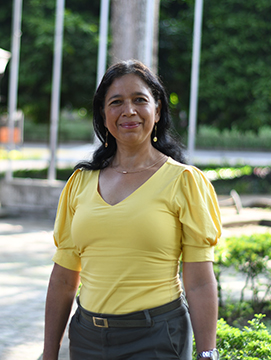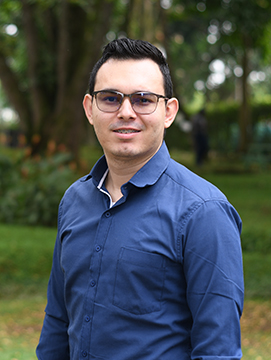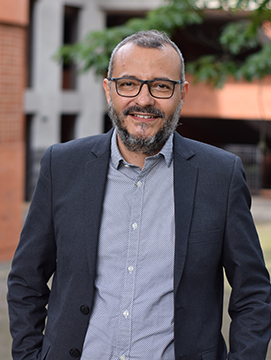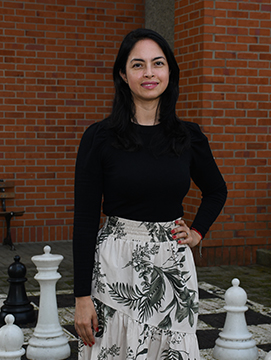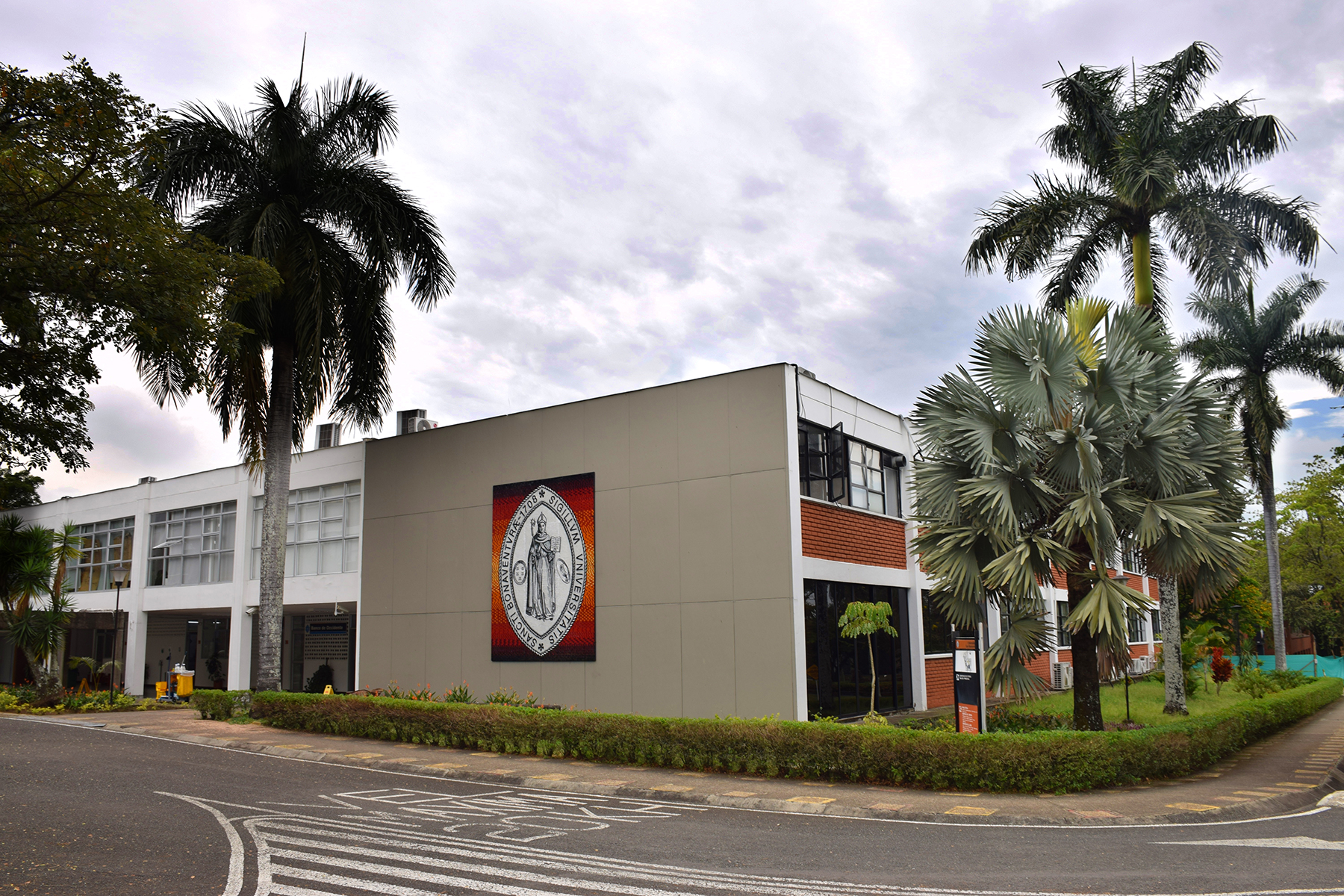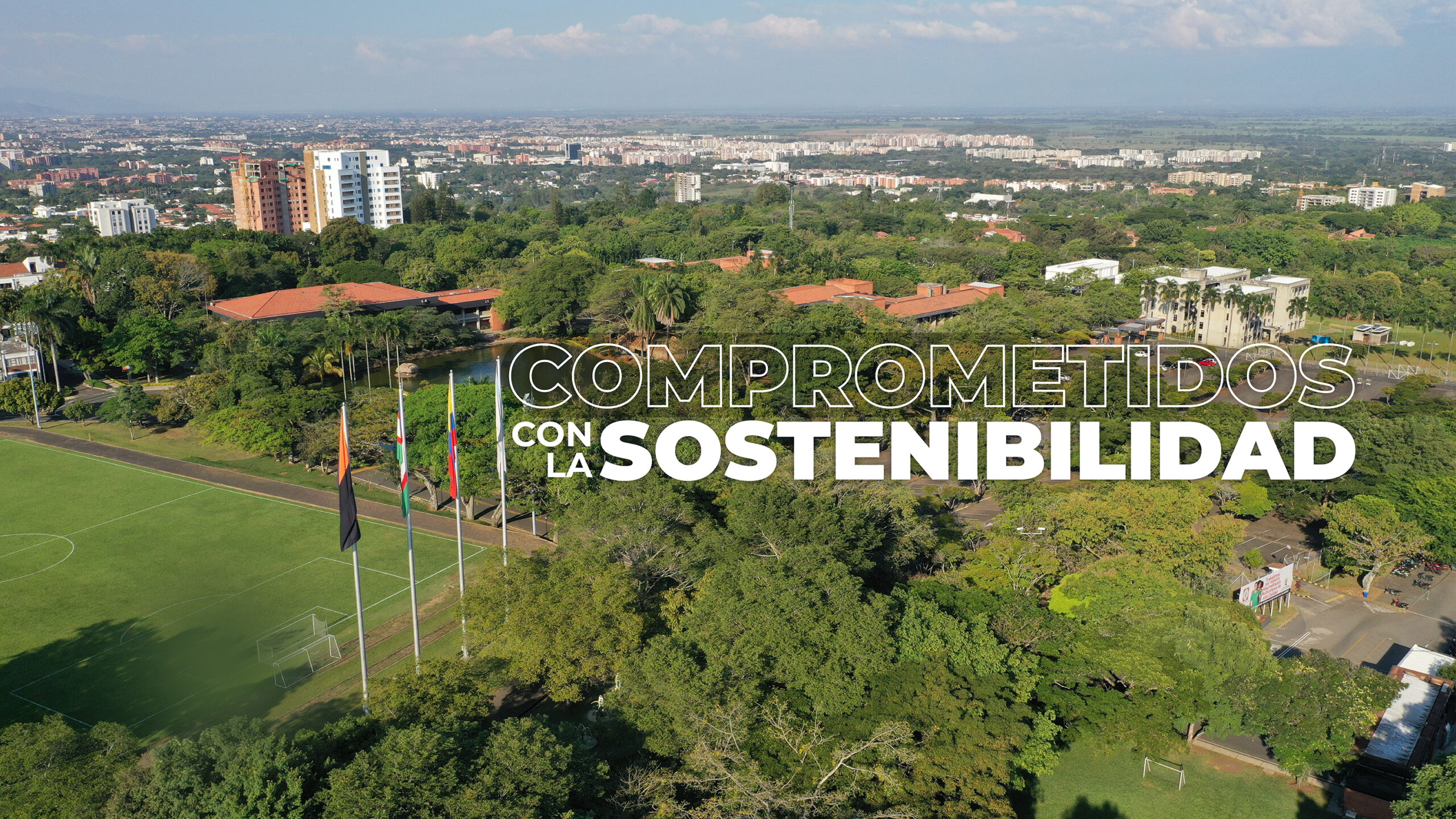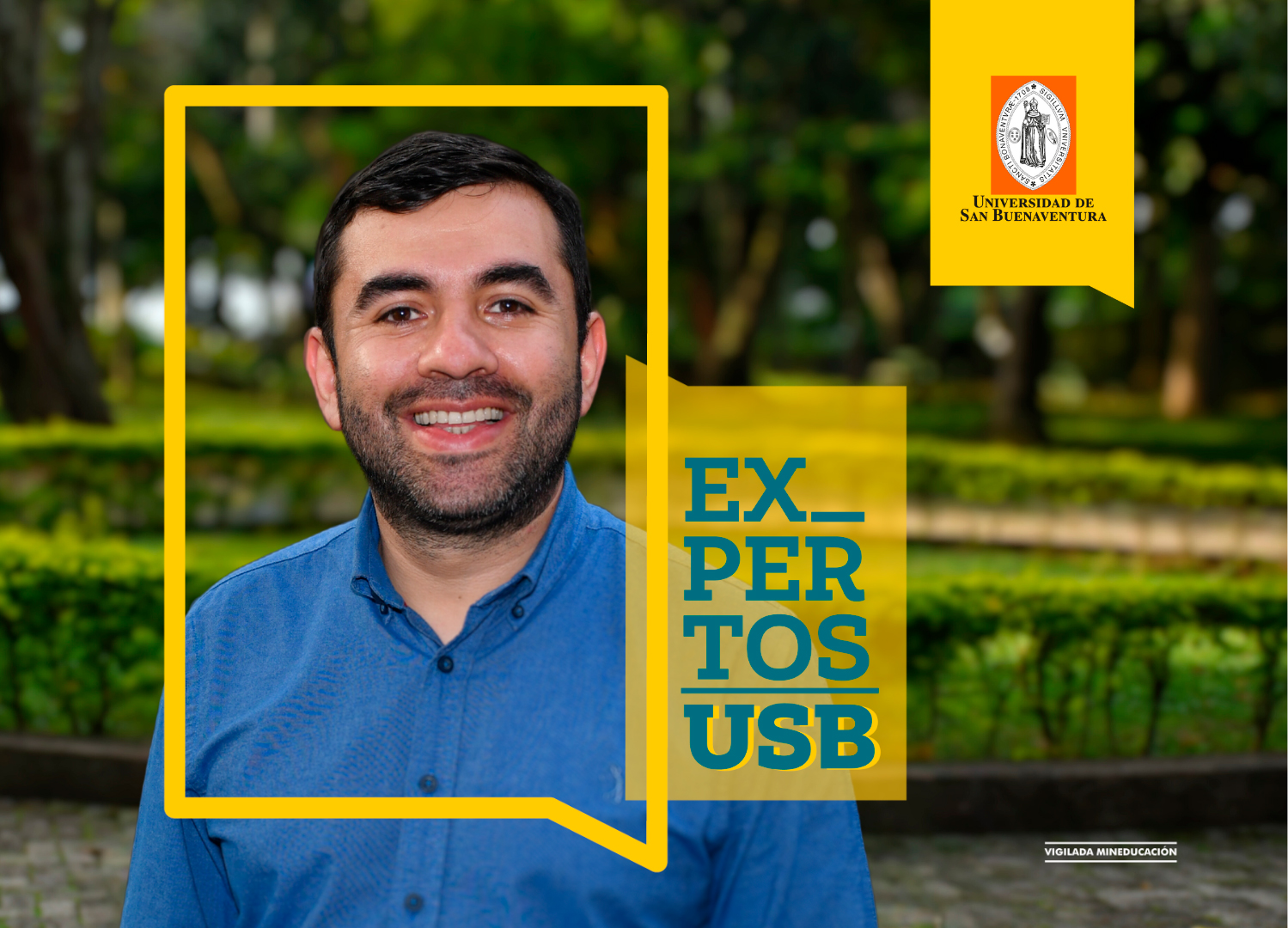Pedagogy
A pedagogical practice based on the person implies orienting all teaching and learning strategies to the development of the human potential of the Bonaventurian student conceived as a historical being, citizen and professional. This objective is materialized in a pedagogical task characterized by having as a point of reference everyday life (the specific and singular contexts inhabited by the person), the dialogic and interpersonal construction of possible interpretations of the world and creativity in the construction of spaces conducive to the generation of knowledge.
Foundation Subjects
Institutional Identity and Franciscanism
The Virtual Chair Institutional Identity and Franciscanism, as an academic space, offers the university student the possibility of knowing the identity of our Alma Mater in its three SUBSTANTIAL dimensions: its being a university, its being Catholic and its being Franciscan; and its four SUBSTANTIVE functions, namely: Teaching, research, social projection and university welfare. The person and personality of the distinguished teacher St. Bonaventure, the life experience of Francis of Assisi, Franciscan thought and the dialogue between Franciscanism and science.
As a fundamental purpose of the Chair we propose to reflect on Franciscan thought and its influence in contemporary social contexts; developing identity principles based and grounded on Christian and Franciscan axiology, to arouse in the students of the University the sense of belonging to our Alma Mater.
To achieve this purpose and being aware of the challenge of education in the emerging knowledge society, we have articulated in this chair, the use of Information and Communication Technologies (ICT) as working tools in the study and professional practice (PEB p. 69). We recognize the contribution of ICTs in the pedagogical and didactic processes, since they offer a series of technological tools and resources that support the teaching and learning processes, such as the Moodle platform and Web 2.0.
The face-to-face and virtual modality of the course, when articulated with ICTs, facilitates communication, collaborative work, access to multiple sources of information and also allows flexibility of time and space to meet academic commitments.
Why is the study of the institutional identity and Franciscanism in our University of San Buenaventura – Cali sectional peremptory? Because it is necessary for the student to know who we are, where we have come from and to appropriate the essential elements that identify us as a Bonaventurian University.
Life Project
The purpose of the life project course is to generate a self-reflective space for students to analyze and follow up on their decision to undertake an academic project that will guide them to become future professionals.
Undertaking an academic project implies allowing the students to assume themselves as managers of their personal, family, social, work and cultural process; permanently seeking improvement, the need to explore new coping strategies in the face of adversities and the possibility of identifying and neutralizing attitudes, beliefs, fears and apprehensions that impede healthy personal development and progress in the choice of the academic project they have initiated. Its relationship with Human Formation and the Franciscan vision.
In this space, we strive for the formation of Bonaventurians capable of interacting with differences and of assuming critical postures in the face of divergences in their professional work from the development of principles, values and social competencies; through the reflection of their life project. The process of self-knowledge is a beginning to build an academic project in accordance and in consonance with the Franciscan philosophy, coherent with its characteristics such as human sensitivity, the recognition of the other in the difference and the spirit of collaboration and brotherhood that is developed in each of the sessions.
Constitution and Democracy
The debate on the ethical and political assumptions that must be contemplated to guarantee a Social State of Law, even if only ideally, based on our guidelines and rules of coexistence, our legal, social and political order. Significant aspects of Franciscan pedagogy that can contribute to the exercise of citizenship are raised.
The Constitution and Democracy course focuses on the exploration of these concepts and basic elements that must be closely linked if we intend to contribute to the construction of a more inclusive society for all and, particularly, if the purpose is to train students who conceive the construction of a professional project that gives support to personal actions, having as a reference the commitment to society and the natural environment.
The integral development of the human personality requires attending to its moral education in order to achieve the unfolding of its possibilities, the perfection of the capacity to choose taking into account others, and the achievement of a greater moral autonomy. In democratic societies, the improvement of the moral capacities of individuals must be associated with the process of school transmission of the values and norms that inspire, albeit ideally, our guidelines and rules of coexistence, our legal, social and political order.
An important aspect of the course is the need to have the spiritual heritage of Franciscan thought as a necessary reference in the exercise of citizenship within moral rectitude and with the knowledge of important precepts of our constitution for the sake of the foundation of participatory democracy.
Franciscanism and Ecology
To assume an ecosophy from the vision of Franciscan humanism in open dialogue with other tendencies, considering Franciscan thought as a paradigm of construction of the individual and society in the dynamics of the relationship and respect for nature. To provide the concepts, categories and basic elements of understanding in order to build in a coherent and consistent way an ethical-ecological attitude of the student that gives reason for personal and social actions, highlighting the recognition of the “other”. To develop theoretical and practical skills by proposing a reflection situated in the context to generate behaviors that lead to improve environmental conditions. Franciscan humanism is a proposal for reflection, which is an important paradigm today. Together with other views of man and society, it proposes a conception oriented to the formation of individuals, attending to their spirituality needs. It also allows us to elucidate ideas about how to organize society and how to face development within the framework of a harmonious relationship with nature. In order to act on the environment, it is necessary to get to know it through a general overview of its components; to relate its state to population dynamics, the use and management of resources, sector policies and the possibilities that society can find to influence its adequate and rational management.
Ecological thinking is a tool for the development of society, because it allows for equitable relationships with nature for the sustainability of resources and future generations. The symbiosis between nature and society can be contextualized, in the sense of enabling and embracing a reality such as that of Valle del Cauca in order to take ownership of its environmental problems and find alternative solutions.
Ethics
The Ethics course is above all a space for reflection and discussion on ethical issues that arise in the professional and personal formation of Bonaventure students. In this management it is important to identify responsibilities, and to this end, it is proposed to divide these responsibilities into four groups. First, from an ethical dimension, addressing situations that illustrate different types of moral conflicts, pointing out their deliberation and resolution, describing behaviors that are accepted or prohibited by the members of the community to which it belongs and that, nevertheless, do not appear enshrined as positive laws subject to some type of legal sanction.
Second, from a legal dimension, regulating competition, protecting the client and the environment, promoting equity and safety, and encouraging the promotion of programs that prevent irregular behavior in the ethical practice of the profession. Third, from an economic dimension indicating how resources and products for the present and future generation are distributed within the social system. Fourth, from a social responsibility dimension, highlighting the organization’s contribution to society in aspects such as quality of life and well-being of the local and global community.
The course aims to explore the concepts and basic elements of ethics for the construction of a professional project that supports the personal actions of those who participate in the course, having as a reference the commitment to society and the environment. This, in turn, should entail the recognition of the “other” as a subject of solidarity, respect, tolerance, justice, participation, dignity and freedom. The method of approaching ethics starts from nuclei of problems in the context of the contemporary world, and consists in applying philosophical reflection to clarify such problems (ranging from the relationship of the individual with himself to the relationship of the individual with others and with the environment).
Contextualization Subjects
Description of humanistic electives
The humanistic electives of the Interdisciplinary Center for Humanistic Studies-CIDEH are an integral part of the Bonaventurian academic formation process. Within this significant framework, the humanistic electives obey the guidelines of formation and human development contained in the Bonaventurian Educational Project (PEB); therefore, they are conceived and designed to accompany the development of ethical sense, spiritual intuition, critical judgment, spirit of social service and leadership. Likewise, they are due to the unavoidable question of raising discussion and suggesting lines of action -from the different disciplines that make up the humanistic field, including the wealth of Franciscan thought-, to the questions and problems that trouble today’s societies and human beings. For this purpose, elective subjects should be considered as a flexible corpus, characterized by criteria of specificity, essentiality, necessity, relevance, sufficiency, interdisciplinarity and eligibility, in such a way as to favor the student’s own taste and intellectual initiative derived from the appropriate choice.
Purposes of humanistic elective courses
- To explore the concepts and basic elements of the humanities for the construction of a professional project that supports the personal actions of future Bonaventurian professionals and the Bonaventurian community in general.
- Emphasize the spiritual heritage of Franciscan thought, as a necessary reference point in these times in which respect and solidarity with nature and neighbor are becoming more and more indispensable.
- To raise a philosophical reflection in particular and from the humanistic sciences in general, on the need to recognize the Other as a subject of solidarity, respect, tolerance, justice, participation, dignity and freedom.
- To consider the importance of respect and responsibility in the face of the growing sense of selfhood, otherness and otherness as indispensable conditions to find meaning to our existence in a world where we are not alone.
Humanistic areas
Humanistic electives are developed in the form of specific topics in a given area of humanistic knowledge. The pedagogical horizon towards which the contents of each of them are directed is to serve as a strategy to consolidate reading, interpretative, writing, dialogical and propositional skills, with increasing conceptual rigor. It is also expected that the student will be able to transcend the frontiers of his or her professional training, venturing into relevant topics that will enrich and broaden the horizon of his or her intellectual concerns.
The offer of humanistic electives, being considered a flexible corpus, is inscribed at a given moment in certain areas of humanistic knowledge, which are susceptible to be expanded, specified or retaken, depending on the demands of a given academic program or the proposals of specialized teachers, which are ultimately endorsed by the CIDEH in accordance with the aforementioned criteria. According to the current offer, the following is a description of some areas of humanistic knowledge and the corresponding electives:
-
Based on the principles of relevance, excellence and social responsibility that the University of San Buenaventura subscribes to in the Bonaventurian Educational Project (PEB), the Interdisciplinary Center for Humanistic Studies (CIDEH) offers a series of elective courses in the area of ethics and social responsibility whose main objective is to deepen reflection on human rights and responsibilities of a moral nature, socio-economic, political and ecological responsibilities that must be considered and exercised in order to adequately perform a profession in the face of the problems posed in complex contemporary societies (from a global, regional, national and local perspective).
The subjects included in this group are:
- Cinema and Human Rights
- Citizenship and Democracy
- Introduction to Social Responsibility
- Human Rights in Colombia
-
The problems created by economic growth and the development of nations pose considerable risks to environmental balance, understood as the set of conditions through which life, in all its manifestations, can develop in a favorable environment. The subjects in this area are designed to provide critical elements of the human sciences applied to the interaction between sustainable development, management and the environment.
The subjects in this area are:
- Environment and Development
- Environmental Management
- Environmental Risk Prevention
- Bioethics
-
The crises posed by today’s society are of a complexity that may be unprecedented in history. The process of secularization meant, at least in the Western world, the withdrawal of religion as a spiritual guide for societies. However, in the specific case of Latin America, an inspection from this historical point of view seems to corroborate that religion has always been present, being a formidable support on which human beings act and justify their actions. The subjects proposed in this area are intended to explore and provide critical thinking about the meaning and role of religion (and specifically religions), which, by the way, has considerable repercussions.
The subjects enrolled in this group are:- Christ Reference for Man
- Theological culture
- Contemporary issues and Franciscan thought
-
The specific topics proposed in the area of anthropology are, among others, identity, anthropology of the body and interculturality. It is intended in the development of the same situations and realities that trouble the communities in the midst of a growing cultural interaction and cultures, which implies problems of communal and individual order.
Subjects belonging to this group are:
- Cultural Identity
- Body Experiences
- Human Skills
- Urban Legends
- The Body and Power
- Creativity and Human Potentiality
-
The initiative to offer literary subjects is based on the need to accompany students in the acquisition of interpretative skills in literary texts, leading to a well-considered writing ability through which they can express their ideas more fluently in accordance with a given theoretical reference.
The following are the subjects that fall into this group:
- Reading and Writing
-
The analysis of history in this group of humanistic electives is aimed at exploring events of the twentieth century whose imprint is still felt in the present day. In this perspective, we can say that the 20th century has chronologically ended, but the political, ideological, socioeconomic and other battles that began there are still being fought, with the aggravating factor that they have become globalized, affecting all human beings, other living beings and the resources necessary for their existence.
The subjects enrolled in this group are:
- Peace Processes and Conflict in Colombia
- Art and the Human
-
Sociology offers a field of extraordinary richness and variety. The topics proposed for analysis and the resulting lines of action are, among others, power relations, war, forced displacement, conflict, social control.
The subjects enrolled in this group are:
- Invisible Powers in Today’s World
- Aggression, Conflict and Social Control
- Displacement and Society
- Conflict Resolution
The awakening of religions: theoretical approach to this notion.
The awakening of religions: theoretical approach to this notion, 2012.
Researchers: Carlos Andrés Méndez Sandoval, Henry Zapata Otálvaro, Edgar Alonso Vanegas Carvajal The purpose of the research project was to take stock of the current situation of the discourse and pastoral practice of the Christian religion, based on the analysis of three problematic axes: the secularization process, religious fundamentalism and interreligious dialogue.
Critical permanence
Critical permanence in higher education in Cali: aspects of the conflict. Editorial Bonaventuriana, 2013.
Researchers: Alexander Muriel Restrepo, Oscar Posso Arboleda, Alexandra Patricia Hurtado Hermann.
The research proposes a new university student appears on the scene, considered in the concrete way of assuming relationships with peers, with friends, with technology; by his way of assuming the job of studying and, in general, the spaces and temporalities of the university; In this order of things, it is a student, in a significant number of cases, prone to permanence in critical condition in the university, a notion that designates, therefore, a type of student prone to certain problems, such as academic performance, disinterest and apathy towards academic activities, among other situations that, in the worst case, can lead to the abandonment of the study. We conclude that it is necessary to establish lines and strategies of action suggested, in the first instance, to the Universidad de San Buenaventura in the city of Cali, where the referenced research has been carried out.
War, Power and Governmentality
War, power and governmentality in the contemporary world. Call 2012-2013.
Researchers: Alexander Muriel Restrepo, Carlos Andrés Méndez Sandoval, Edgar Alonso Vanegas Carvajal.
We propose a sequence of analysis on the notions of war, power and governmentality in such a way that they lead us to see how verifiable are in our societies the assumptions established by the Foucauldian approach, in dialogue with his critical authors, regarding the power relations associated with war, but also susceptible of deriving in suitable forms of government of oneself and of others. In this order of things, what should we be aware of today in the face of the crisis of the State in the rigor of a confluence between sovereign power and disciplinary power.
Psycho-pedagogical care program
The articulation of the CIDEH Life Project Course with the Psychopedagogical Attention Program of the Institutional Welfare as a strategy for the promotion of student permanence.
One of the priorities of the Universidad de San Buenaventura is the permanence with quality of its students and the successful completion of their academic project. In support of this objective, the academic units CIDEH and Institutional Welfare have strategically allied themselves in the articulation of the Life Project course with the Psychopedagogical Attention Program in an interacive dynamic.
The Life Project experience provides feedback to the Psychopedagogical Attention Program for the formulation and design of promotion and prevention strategies, as well as making it possible to detect risk situations of students that can be directly intervened by the Program.
At the same time, the interventions of the Psycho-pedagogical Attention Program generate valuable information on the situations that affect students in general and are taken up in class as reflective pedagogical elements, at the same time that it demands from the professors and the professionals of the Program a constant revision and analysis of the multiple student identities.
The foundations of this link are communication, teamwork and the space built for interaction between the professionals of the two units, which in turn expands to the Academic Programs, to the extent that it becomes a fundamental pillar for the constant review of the pedagogical relationship, the interaction student – teacher – institution – knowledge, for the establishment of improvement and optimization plans.
Discover yourself naturally
The Pastoral in conjunction with the CIDEH seeks to reaffirm and strengthen the relationship of the members of the Bonaventurian community with the environment and its natural environment of being, through interaction with this environment; promoting awareness in students about the care of natural resources and the importance of knowing that small acts are significant to preserve the environment; creating spaces for learning and adventure outdoors (natural and/or urban), which seek to improve the relationship with the environment, through the development of skills, the integration of knowledge and the promotion of values, seeking to improve the quality of life in the community.

